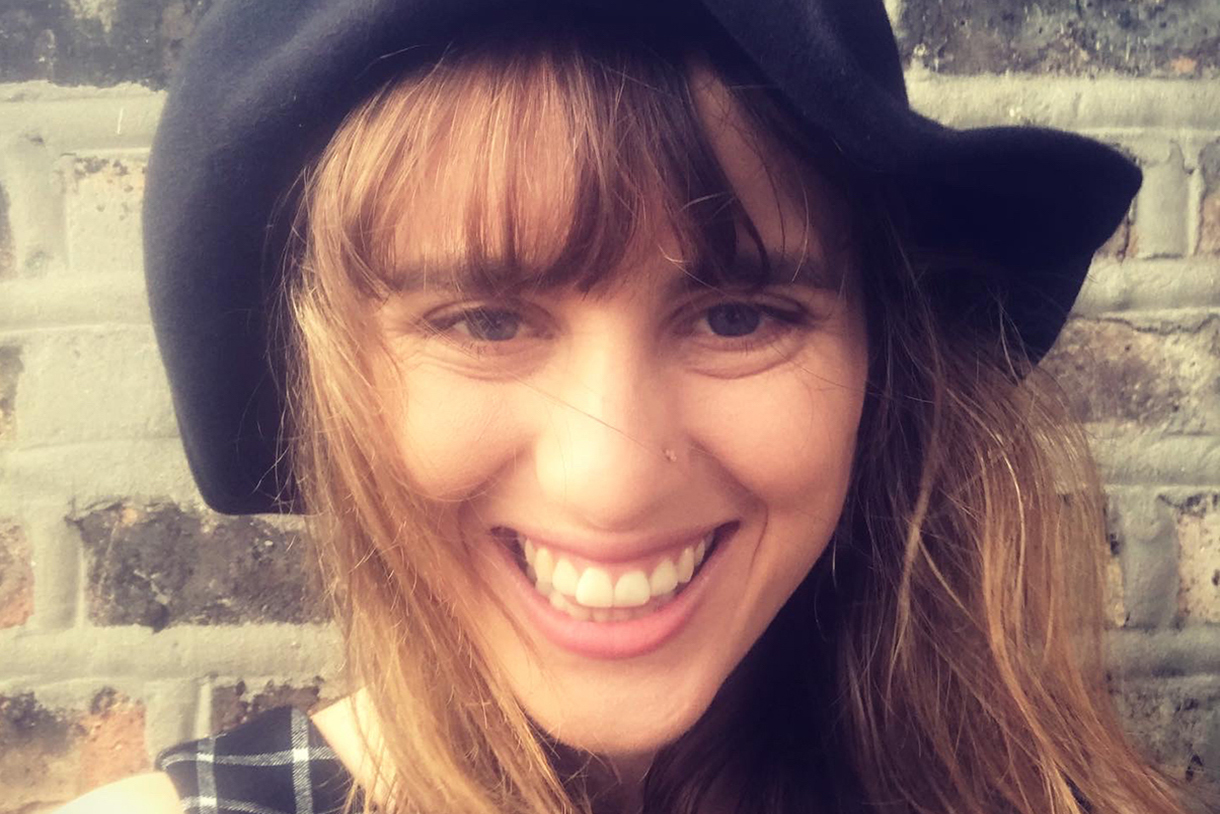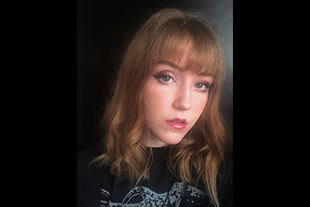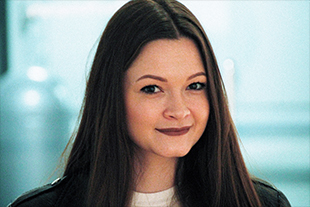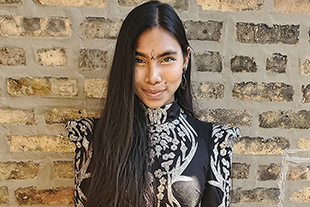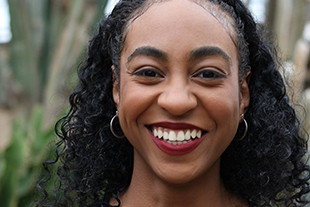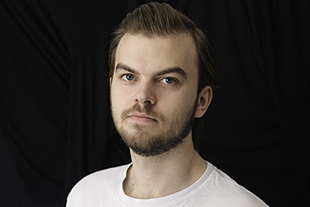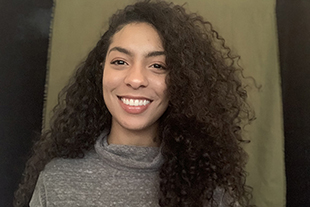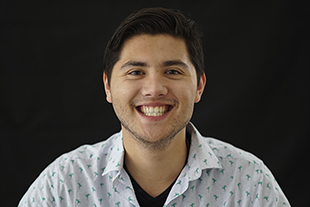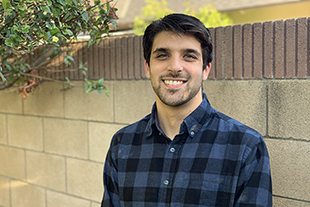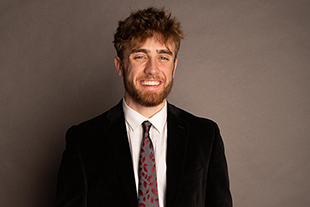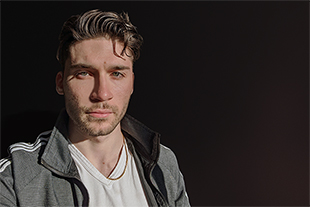Zoe Kriegler-Wenk
European Devised Performance Practice (MFA)
What would you say has been the most surprising thing you learned at Columbia?
Don't take yourself or your work too seriously. This is not to discount the value of the artistic process or work itself, but to allow yourself to find the play and the joy in the material you create. Not just to follow it, but to sink into it because that energetic presence is what will inevitably engage an audience. This may seem obvious, but for me it was a bit of an epiphany. So often as artists we feel that, because we study a less "practical" field, we need to prove our worth by creating some sort of masterpiece that instantly evokes profound philosophical revelation. That's a great goal, but it is not necessary. What is necessary is the heart of the piece. It was only after chasing my classmates in circles during our unit on farce, gesticulating wildly while in half-mask and making unreasonably long eye-contact with my audience in various clowning routines (each of which I first despised and then grew to love), that I realized that, while physical comedy is not my personal artistic style, my work can only benefit from the energy and engagement that these styles require.
What experiences or courses at Columbia do you feel have been most beneficial?
The most beneficial experiences I've had at Columbia have been the one-on-one meetings with professors and ensemble studio sessions with my cohort. There are only five of us in the Master of Fine Arts European Devised Performance Practice program and we are lucky to receive so much undivided attention and feedback from our directors and mentors. Often, instructors and guest directors will tailor the curriculum to support our interests and personal research. This has been such a gift for my growth as an artist.
What are your plans for after graduation?
In the pre-pandemic times, my plan was to work at a cozy coffee or tea shop while applying for jobs in arts education, administration and editing. Who knows, maybe the world will open back up in time for me to do just that. If not, I will continue to work on the myriad of creative projects that I have planted seeds for during my time at Columbia College. Compose new material for a live version of my thesis project? Expand an existing play script? Keep writing that novel I recently returned to? These are all possibilities.
I am also hoping to work towards a registration in drama therapy. Whether I begin the training this summer of the following summer is contingent upon the duration of shelter-in-place. Regardless of the timeline, I hope to apply my experience in the fields of physical theatre and creative writing to an integrated and embodied healing process.
Do you have any advice for current students?
Make connections with students, faculty and staff. I'm sure you're tired of the networking spiel, but, in the arts, it really is about obtaining and offering support within your community. Reciprocity. Building connections. Your teachers and students offer a wealth of resources, so don't be afraid to schedule meetings, pitch ideas or simply offer to take someone out to coffee to chat about the things that inspire you to keep creating art.
